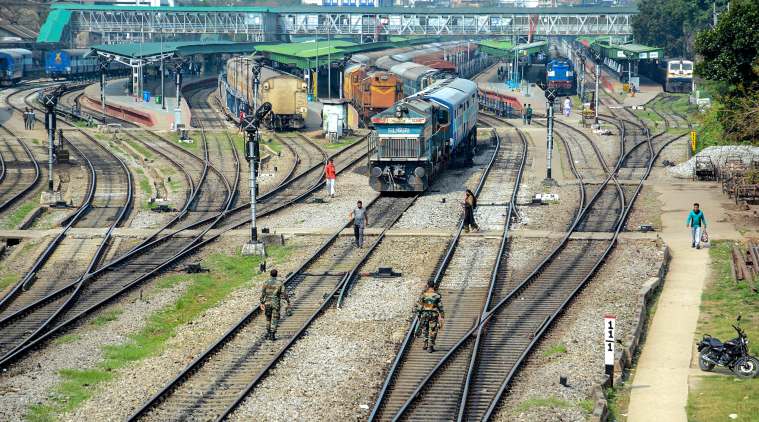 Since passenger trains were not running, more freight trains could be planned as per the requirements of the state authorities and private traders (File/PTI Photo)
Since passenger trains were not running, more freight trains could be planned as per the requirements of the state authorities and private traders (File/PTI Photo)
Between March 25 and April 30, during the nationwide lockdown, the Northeast Frontier Railway (NFR) has run a record number of 622 freight trains carrying more than two million metric tons of essential commodities.
“In this period, we have managed to carry more than double the quantity of goods we usually carry,” said Subhanan Chanda, Chief Public Relations Officer, NFR.
The commodities included essential items such as food grains (rice/wheat), pulses, sugar, salt, edible oil, petroleum products, coal for power plants, onions, potatoes and other food items.
“We were able to pull this feat off because of two things,” said Chanda, “One, since passenger trains were not running, we could plan more freight trains as per the requirements of the state authorities and private traders.”
The second was because the NFR utilised this time to carry repair work — which led to smooth and uninterrupted operations.
“We also used this period to carry out maintenance and repair works simultaneously,” Chanda explained, “The available machine and manpower were optimally utilized to repair and maintain the operational infrastructure like track and signal gears so that uninterrupted operations can be carried out.”
A release from the NFR stated that “383 trains brought these commodities to Assam alone, 63 trains were run to different rail heads connecting other Northeastern states.” Also, 176 freight trains were run to West Bengal and Bihar – two states partially served by the NFR.
“It was possible because there was demand by the states and private companies,” said Chanda. According to the release, the Food Corporation of India (FCI) brought in 142 freight trains to Assam, 50 trains to other Northeastern states and 29 and 42 freight trains to Bihar and West Bengal (NFR jurisdiction), respectively.
“The food grains moved by FCI in the month of April is twice the monthly average quantity of food grain moved in normal circumstances” said the release.
Chanda said that all lockdown rules including social distancing, individual safety and hygiene and minimal deployment of manpower were ensured through the period.